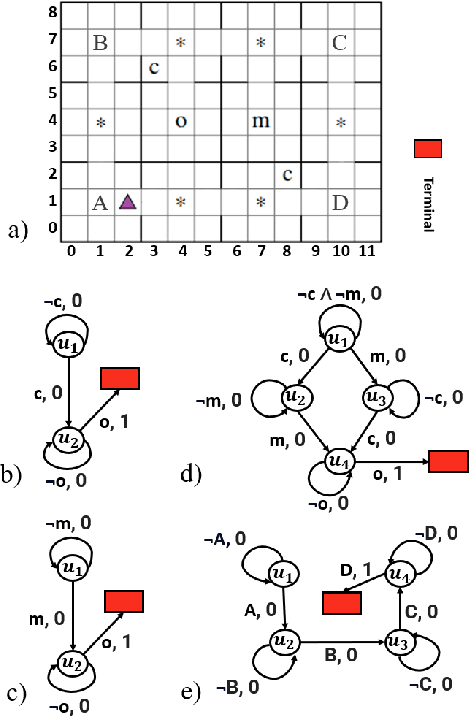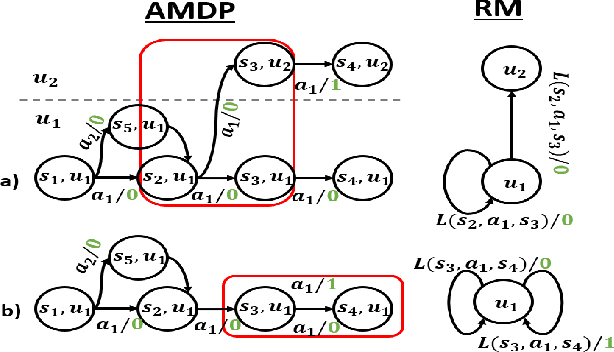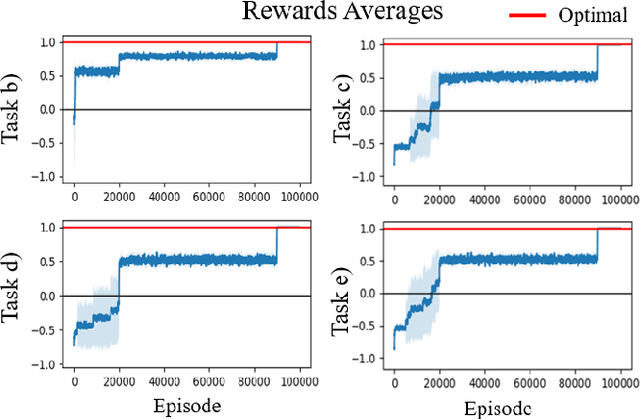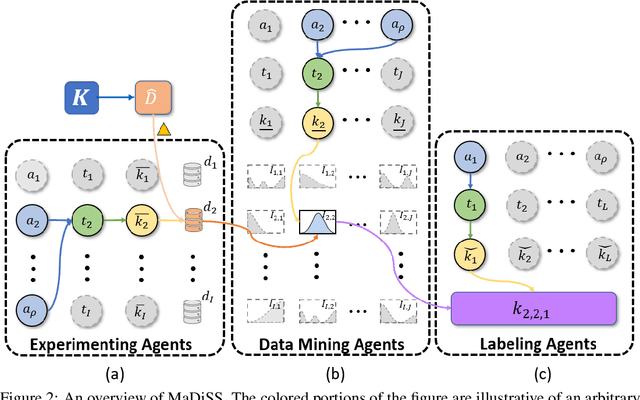Gregory Hyde
Detecting Hidden Triggers: Mapping Non-Markov Reward Functions to Markov
Jan 20, 2024



Abstract:Many Reinforcement Learning algorithms assume a Markov reward function to guarantee optimality. However, not all reward functions are known to be Markov. In this paper, we propose a framework for mapping non-Markov reward functions into equivalent Markov ones by learning a Reward Machine - a specialized reward automaton. Unlike the general practice of learning Reward Machines, we do not require a set of high-level propositional symbols from which to learn. Rather, we learn \emph{hidden triggers} directly from data that encode them. We demonstrate the importance of learning Reward Machines versus their Deterministic Finite-State Automata counterparts, for this task, given their ability to model reward dependencies in a single automaton. We formalize this distinction in our learning objective. Our mapping process is constructed as an Integer Linear Programming problem. We prove that our mappings provide consistent expectations for the underlying process. We empirically validate our approach by learning black-box non-Markov Reward functions in the Officeworld Domain. Additionally, we demonstrate the effectiveness of learning dependencies between rewards in a new domain, Breakfastworld.
AI for Open Science: A Multi-Agent Perspective for Ethically Translating Data to Knowledge
Oct 31, 2023

Abstract:AI for Science (AI4Science), particularly in the form of self-driving labs, has the potential to sideline human involvement and hinder scientific discovery within the broader community. While prior research has focused on ensuring the responsible deployment of AI applications, enhancing security, and ensuring interpretability, we also propose that promoting openness in AI4Science discoveries should be carefully considered. In this paper, we introduce the concept of AI for Open Science (AI4OS) as a multi-agent extension of AI4Science with the core principle of maximizing open knowledge translation throughout the scientific enterprise rather than a single organizational unit. We use the established principles of Knowledge Discovery and Data Mining (KDD) to formalize a language around AI4OS. We then discuss three principle stages of knowledge translation embedded in AI4Science systems and detail specific points where openness can be applied to yield an AI4OS alternative. Lastly, we formulate a theoretical metric to assess AI4OS with a supporting ethical argument highlighting its importance. Our goal is that by drawing attention to AI4OS we can ensure the natural consequence of AI4Science (e.g., self-driving labs) is a benefit not only for its developers but for society as a whole.
 Add to Chrome
Add to Chrome Add to Firefox
Add to Firefox Add to Edge
Add to Edge